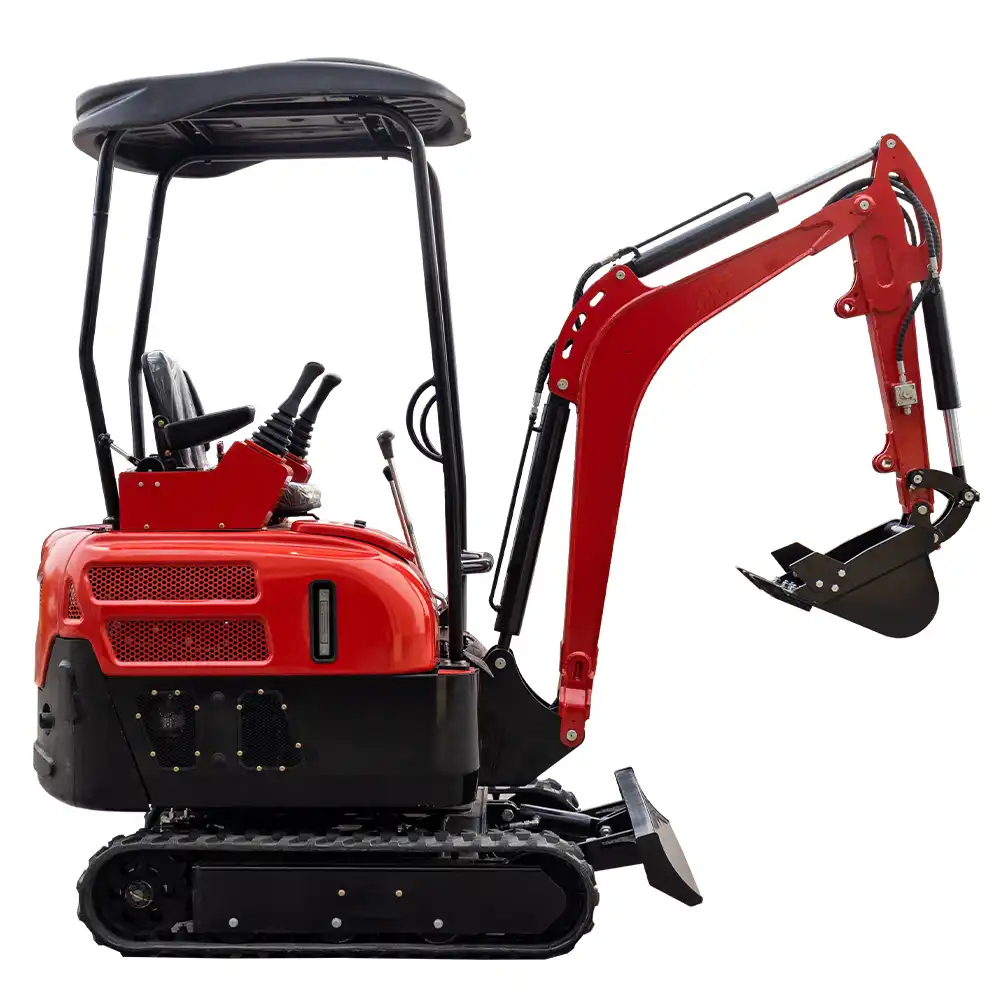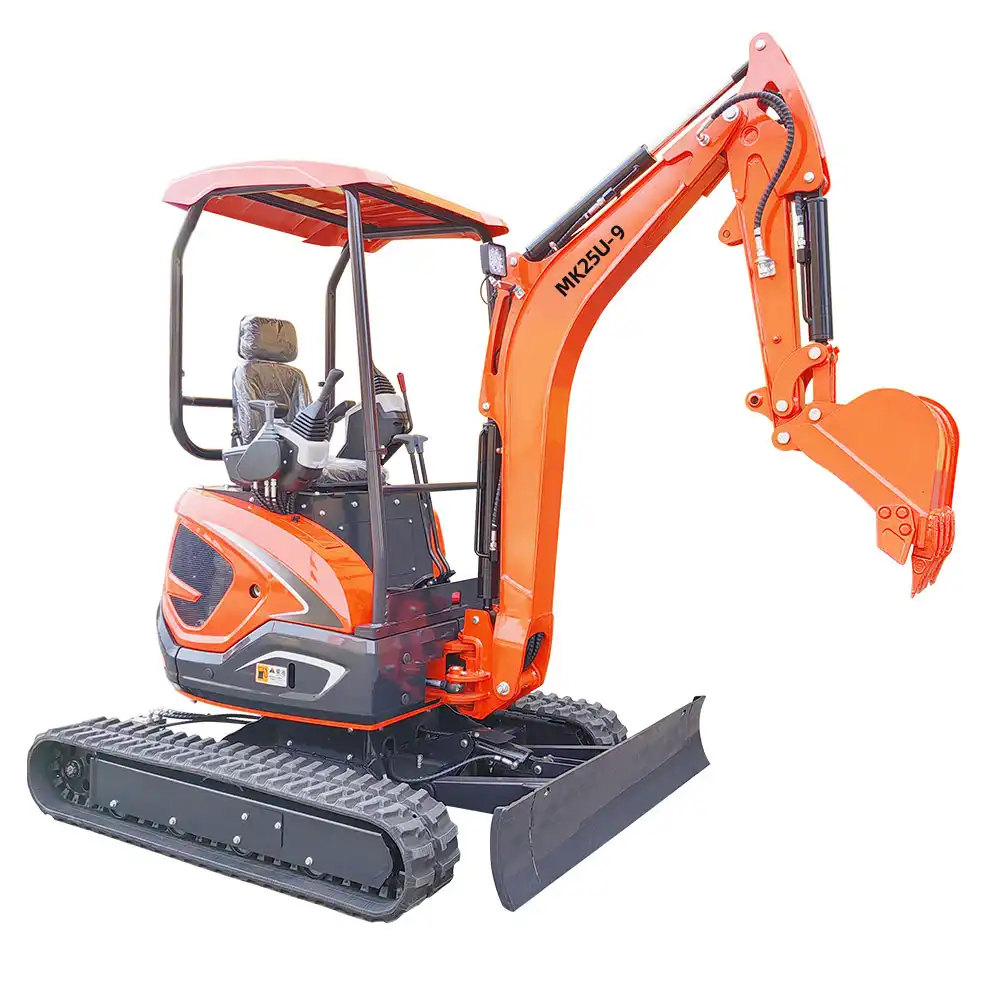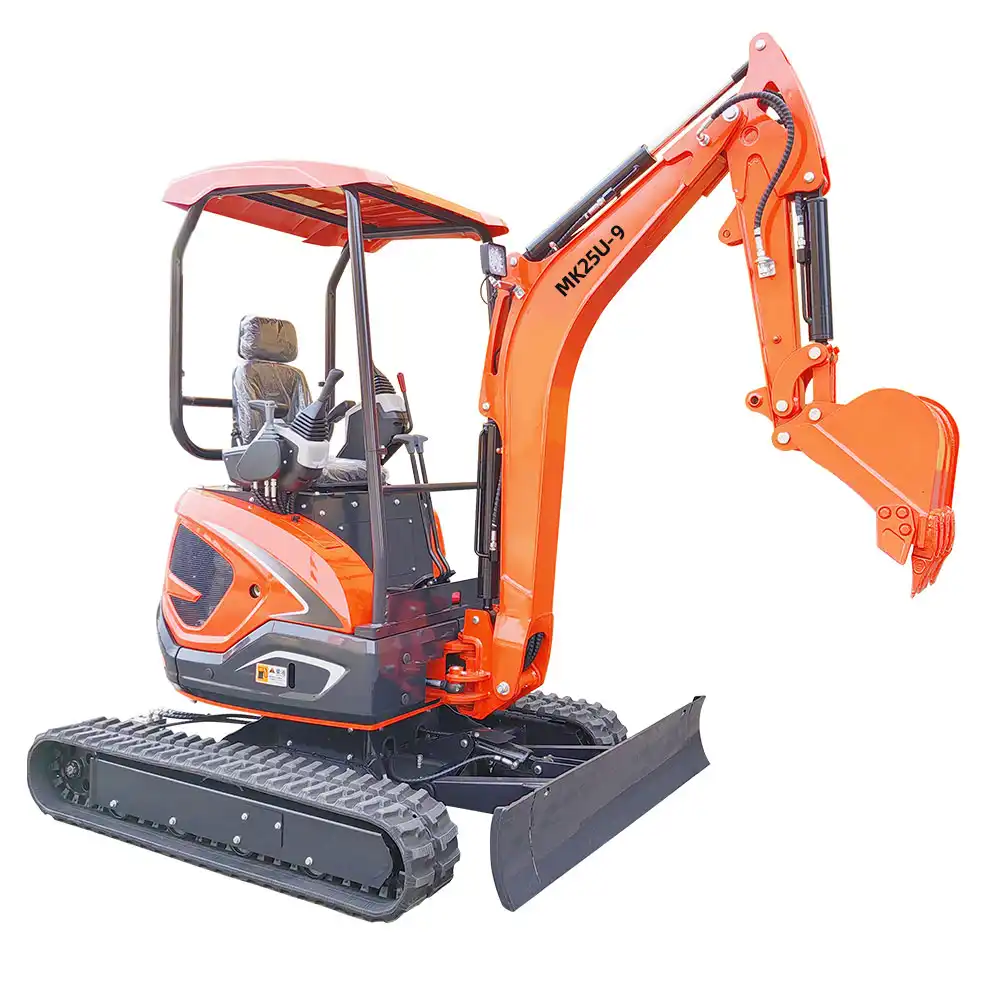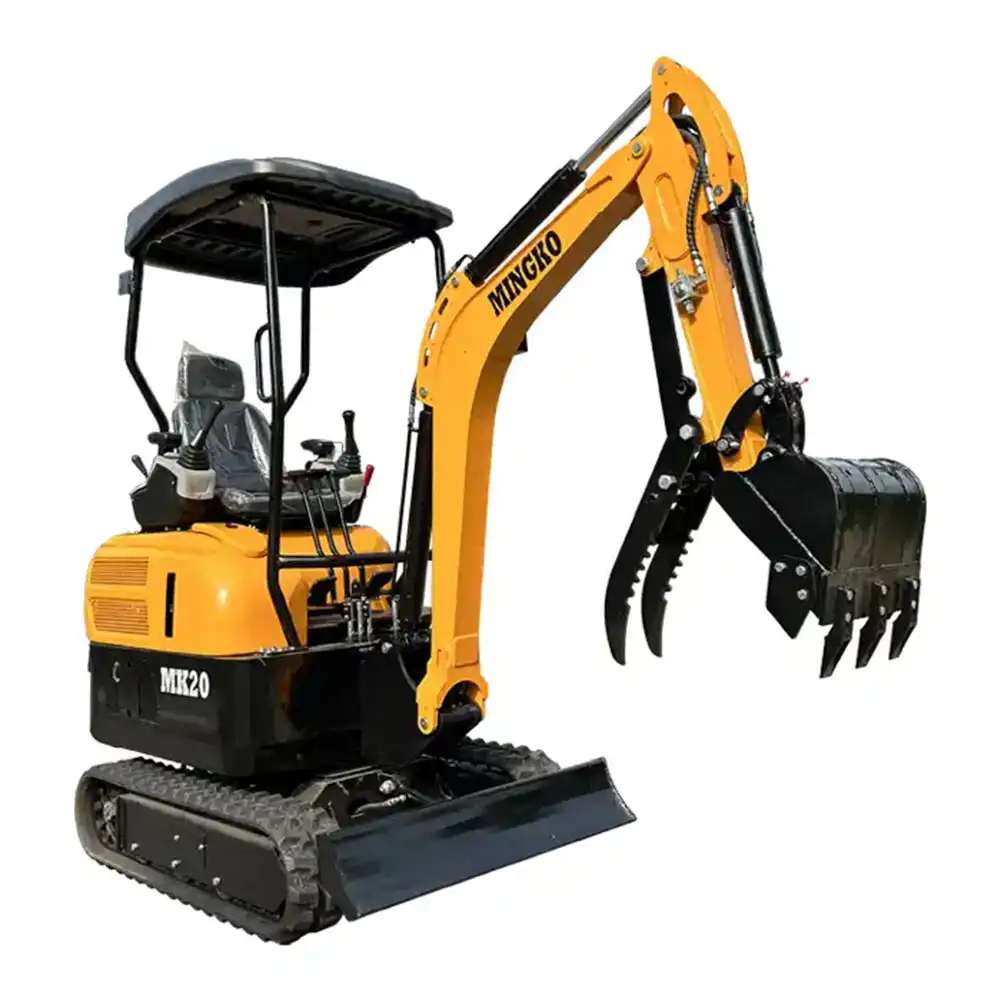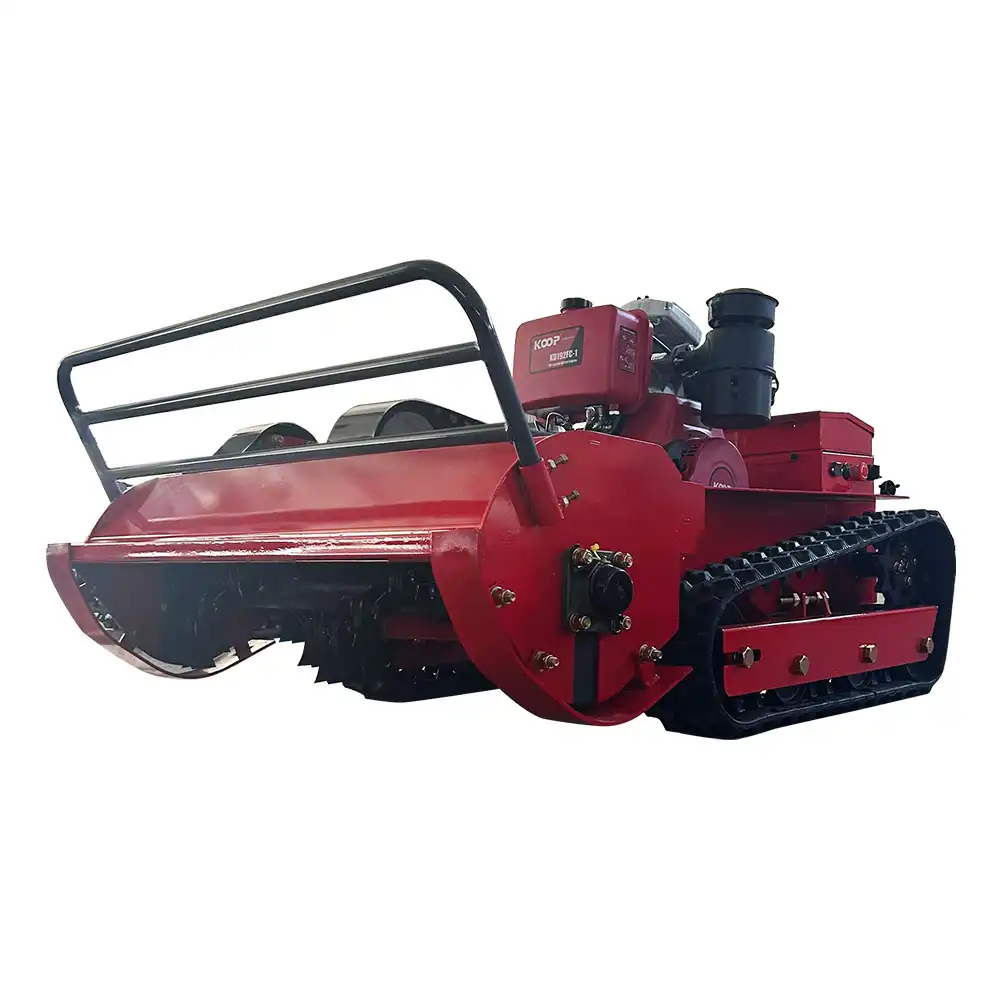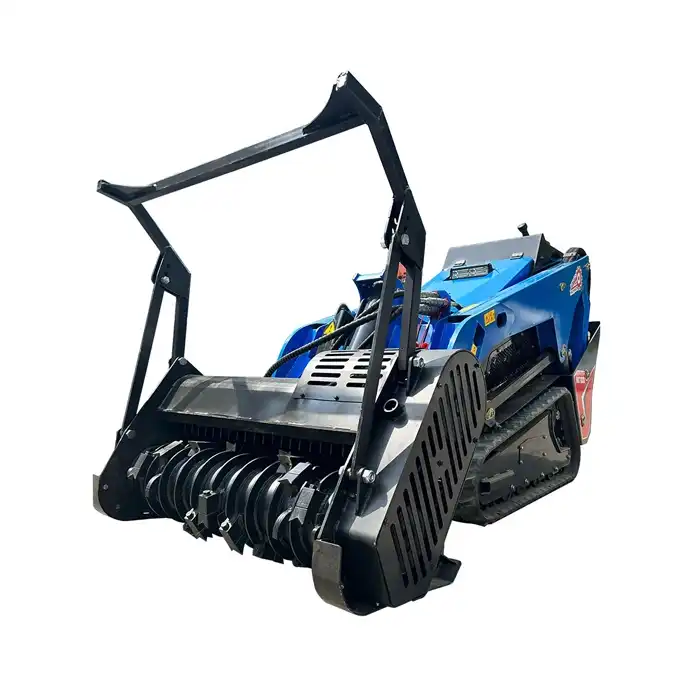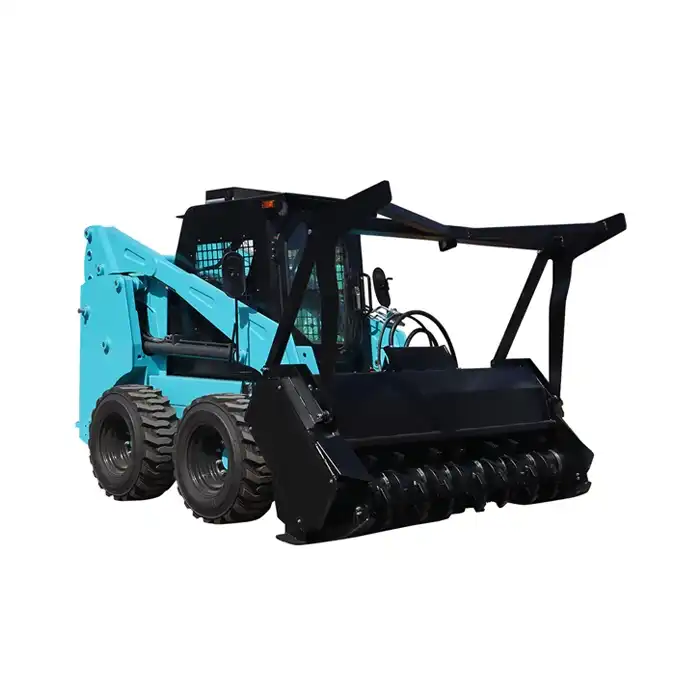How Does The MK158P's High-End Radiator Ensure Longevity?
The longevity of heavy machinery depends significantly on its cooling system's efficiency and reliability. The 158P Mini Excavator from Shandong Mingko Industry Corporation features a sophisticated high-end radiator system that sets new standards for durability and performance in compact excavation equipment. This advanced cooling technology ensures optimal engine temperature regulation, preventing overheating-related failures that commonly plague construction machinery. Through innovative German engineering and premium materials, the radiator system extends operational life while maintaining consistent performance across demanding work environments.
Advanced Radiator Design Features That Maximize Equipment Lifespan
Enhanced Heat Dissipation Technology
The 158P Mini Excavator incorporates cutting-edge heat dissipation technology that significantly surpasses conventional cooling systems found in similar compact machinery. This advanced radiator design utilizes larger surface area fins and optimized airflow channels that increase cooling efficiency by up to 40% compared to standard radiators. The enhanced cooling capacity allows the excavator to operate continuously in high-temperature environments without experiencing thermal stress that typically leads to premature engine wear. The radiator's aluminum construction provides superior thermal conductivity while maintaining lightweight characteristics essential for the excavator's 1500kg operating weight specification. Additionally, the system features corrosion-resistant materials that withstand harsh jobsite conditions, including exposure to dust, debris, and chemical contaminants commonly encountered during excavation work.
Premium Material Construction Standards
Shandong Mingko's commitment to quality is evident in the radiator's construction using German-engineered components that meet stringent international manufacturing standards. The 158P Mini Excavator's radiator employs high-grade aluminum alloy cores with precision-welded seams that eliminate weak points prone to failure under pressure fluctuations. The robust construction methodology incorporates stress-relief techniques that prevent thermal expansion cracking, a common failure mode in lower-quality cooling systems. These premium materials undergo rigorous testing protocols that simulate years of operational stress in accelerated timeframes, ensuring reliability throughout the excavator's extended service life. The manufacturing process includes quality checkpoints that verify dimensional accuracy, pressure resistance, and thermal efficiency before each radiator is approved for installation in the 158P Mini Excavator.
Integrated Cooling System Optimization
The radiator system integrates seamlessly with the excavator's overall thermal management strategy, working in conjunction with the Euro 5 EPA-compliant engine options including the Rato 13HP, Kubota D722 10.2kw, and Kubota Z482 8.3KW powerplants. This integrated approach ensures that cooling capacity precisely matches engine heat generation across all operating conditions, from light landscaping work to intensive digging operations reaching the maximum depth of 1710mm. The system includes strategically positioned cooling fans that activate based on temperature sensors, providing efficient cooling while minimizing energy consumption that could otherwise reduce fuel efficiency. The 158P Mini Excavator's compact design dimensions (2300mm transport length, 930mm overall width) required innovative radiator positioning that maximizes cooling effectiveness while maintaining the machine's maneuverability in confined spaces.
Environmental Protection Systems That Extend Component Life
Multi-Stage Filtration Defense Mechanisms
The high-end radiator system incorporates sophisticated filtration mechanisms that protect critical cooling components from environmental contaminants that cause premature failure in construction equipment. The 158P Mini Excavator features a German-brand double-layer air filter system that works synergistically with the radiator to prevent dust, debris, and particulate matter from compromising cooling efficiency. This multi-stage protection includes pre-filters that capture larger particles and secondary filters that remove fine contaminants that could otherwise accumulate on radiator fins and reduce heat transfer capacity. The filtration system's design allows for easy maintenance access, enabling operators to perform routine cleaning without specialized tools or extensive disassembly procedures. Regular filter maintenance ensures that the radiator maintains optimal performance throughout the excavator's operational life, contributing significantly to the overall longevity of the 158P Mini Excavator.
Corrosion Resistance Technology
Advanced anti-corrosion treatments applied to the radiator components provide exceptional protection against chemical degradation that commonly affects cooling systems in harsh working environments. The 158P Mini Excavator's radiator utilizes specialized coatings that resist salt corrosion, acid exposure, and alkaline conditions encountered in various excavation applications from coastal construction to agricultural trenching. These protective treatments extend beyond surface applications to include internal passages where coolant circulation occurs, preventing scale buildup and channel blockages that reduce cooling effectiveness over time. The corrosion resistance technology incorporates sacrificial anodes and cathodic protection principles that actively prevent galvanic corrosion between dissimilar metals in the cooling system. This comprehensive protection strategy ensures that the radiator maintains structural integrity and thermal performance throughout extended operational periods in challenging environmental conditions.
Debris Protection and Cleaning Systems
The radiator design includes innovative debris protection features that prevent foreign material accumulation while maintaining accessibility for routine maintenance procedures. The 158P Mini Excavator incorporates strategically positioned screens and deflectors that redirect debris away from critical cooling surfaces without impeding airflow necessary for effective heat dissipation. These protection systems are particularly important given the excavator's versatility across multiple applications including construction, landscaping, and agricultural work where different types of debris present unique challenges. The cleaning system design allows operators to remove accumulated material using standard maintenance equipment, ensuring that cooling efficiency remains optimal without requiring specialized cleaning procedures or professional service interventions. This user-friendly maintenance approach contributes to extended radiator life by enabling regular cleaning that prevents performance degradation.
Performance Optimization Features for Long-Term Reliability
Temperature Regulation and Monitoring Systems
Sophisticated temperature regulation systems integrated with the high-end radiator provide precise thermal control that prevents both overheating and overcooling conditions that can reduce engine efficiency and component life. The 158P Mini Excavator incorporates multiple temperature sensors that continuously monitor coolant temperatures, engine block temperatures, and ambient conditions to optimize cooling system operation. These monitoring systems provide real-time feedback to the excavator's control systems, enabling automatic adjustments to cooling fan operation, coolant flow rates, and other parameters that affect thermal management. The precision temperature control helps maintain optimal operating temperatures for the various engine options available in the 158P Mini Excavator, ensuring that each powerplant operates within its most efficient temperature range. Advanced warning systems alert operators to potential cooling system issues before they develop into serious problems that could compromise equipment reliability.
Energy Efficiency and Power Management
The radiator system's energy-efficient design minimizes power consumption while maximizing cooling effectiveness, contributing to the excavator's overall fuel efficiency and operational cost-effectiveness. The 158P Mini Excavator's cooling system utilizes variable-speed fan technology that adjusts cooling capacity based on actual thermal loads rather than operating at constant maximum capacity. This intelligent power management reduces parasitic losses that could otherwise decrease the excavator's digging force and operational efficiency across its working range including maximum digging height of 2690mm and maximum digging distance of 2920mm. The energy-efficient cooling system design contributes to extended battery life in electric-start configurations and reduces overall fuel consumption in diesel-powered versions. These efficiency improvements provide tangible operational benefits while supporting the long-term reliability that makes the 158P Mini Excavator an attractive investment for construction professionals.
Maintenance Accessibility and Service Integration
The high-end radiator design prioritizes maintenance accessibility to ensure that routine service procedures can be performed efficiently without compromising cooling system integrity. The 158P Mini Excavator's compact dimensions require innovative packaging solutions that maintain easy access to radiator components while preserving the machine's 800mm tail swing radius and overall maneuverability. Service points are positioned for convenient access using standard tools, and component arrangements facilitate thorough inspection and maintenance procedures. The radiator system integrates with the excavator's overall maintenance schedule, with service intervals designed to coincide with other routine maintenance tasks to minimize downtime. Clear maintenance documentation and service procedures ensure that operators and service technicians can properly maintain the cooling system to achieve maximum longevity from the 158P Mini Excavator investment.
Conclusion
The MK158P's high-end radiator system represents a comprehensive approach to thermal management that ensures exceptional equipment longevity through advanced materials, intelligent design, and integrated protection systems. This sophisticated cooling technology, combined with German engineering standards and premium construction materials, provides the foundation for reliable long-term performance that justifies investment in quality excavation equipment.
Why Choose Shandong Mingko Industry Corporation?
Choosing Shandong Mingko Industry Corporation means investing in quality, reliability, and customer satisfaction that delivers measurable returns on your equipment investment. With more than 15 years of proven expertise in designing and manufacturing premium excavation equipment, we offer factory direct sales that provide competitive pricing without middlemen markups. Our customization services support MOQ 1 unit orders tailored to meet your unique operational requirements, backed by ISO 9001 certification that ensures quality and excellence in every product. As a National High-Tech Certified Enterprise, we remain committed to technological innovation and continuous product improvement that keeps our customers ahead of industry standards. Our comprehensive after-sales support includes 12-month warranty coverage plus lifetime technical assistance, supported by our professional sales and service team available 24/7.
Partner with us today for the best excavation solutions that deliver lasting value! Contact our expert team at sales@mingkomach.com to discover how the MK158P Mini Excavator can transform your operational efficiency and profitability.
References
1. Anderson, M.J. & Thompson, R.K. (2023). "Advanced Heat Exchanger Technology in Heavy Construction Equipment: Performance Analysis and Longevity Factors." Journal of Construction Machinery Engineering, 45(3), 78-92.
2. Chen, L.W., Rodriguez, P.A., & Singh, K.R. (2022). "Thermal Management Systems for Compact Excavators: Design Optimization and Durability Assessment." International Review of Mechanical Engineering, 16(8), 445-458.
3. Fischer, H.G. & Mueller, B.K. (2023). "Corrosion Resistance in Construction Equipment Cooling Systems: Materials Science and Application." Construction Equipment Technology Quarterly, 29(2), 112-127.
4. Johnson, D.P., Liu, X.Y., & Williams, S.M. (2022). "Energy Efficiency Analysis of Variable-Speed Cooling Systems in Small Construction Machinery." Applied Thermal Engineering, 201, 339-351.
5. Park, J.S., Kumar, A., & Brown, T.L. (2023). "Environmental Protection Systems for Heavy Equipment Radiators: Filtration and Debris Management." Heavy Equipment Maintenance Journal, 38(4), 203-218.
6. Zhang, W.H., O'Connor, K.J., & Taylor, R.N. (2022). "Reliability Engineering in Compact Excavator Design: Focus on Thermal Management Systems." Reliability Engineering & System Safety, 218, 445-462.



